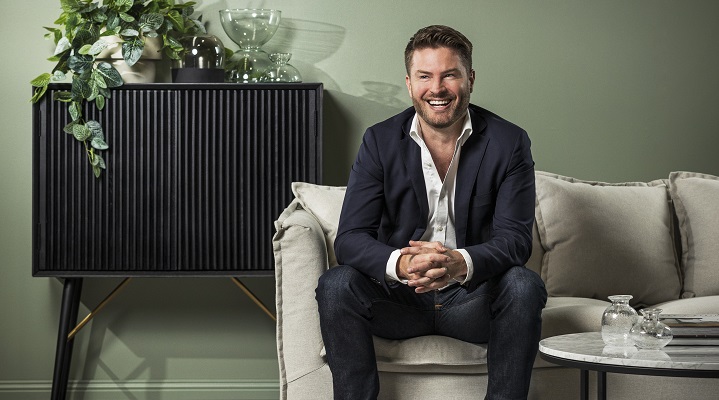Inside Retail’s Top 50 People in E-Commerce is an annual ranking of the most impressive and inspiring leaders in Australia’s online retail industry. Our 2022 report features C-level executives with decades of leadership experience, alongside start-up founders and digital specialists with a wide range of skills, from marketing to logistics. You can download it here. Over the past few weeks, we’ve been sharing in-depth profiles of this year’s Top 10. Today, we take a look at
at #9 – Temple & Webster CEO Mark Coulter.
Coulter co-founded Temple & Webster in 2011 and was made CEO in 2016. Before taking this entrepreneurial leap, he worked as director of digital strategy for News Corp and spent over 10 years in strategy consulting and corporate management roles, including at McKinsey & Co. Here, he shares his commitment to workplace diversity and why innovation is at the heart of Temple & Webster’s success.
As the co-founder and CEO of Australia’s leading online furniture company, Mark Coulter firmly believes that shopping online for furniture will be the norm, rather than the exception, in the future. But until recently, this view didn’t seem to be shared – or fully believed – by the majority of traditional retailers.
People would often point to the fact that customers prefer to touch and feel products like sofas and mattresses in real life before buying, and say the logistics of delivering big-and-bulky goods are simply too hard and costly.
Then came Covid-19, and Temple & Webster was able to keep up with the rise in demand for home office equipment and new bedroom decor, while bricks-and-mortar stores were shut.
The online retailer’s record FY21 results speak for themselves: revenue was up 85 per cent to $326 million, EBITDA was up 141 per cent to $20.5 million; and active customers were up 62 per cent, with the number of repeat customer orders overtaking first-time customers for the first time ever.
“I’m most proud that we achieved this growth while significantly improving customer satisfaction, which is running at record levels,” Mark tells Inside Retail.
“Last year, we crossed the milestone of 750,000 active customers, which means we’re fulfilling our vision of making the world more beautiful, one room at a time.”
One of the key reasons Temple & Webster has been able to scale so successfully over the last few years is the culture of innovation that is at the heart of the organisation, and Mark has continued to invest in this through the pandemic.
Last year, for example, the company launched a mobile app for Android, following on from the launch of its iOS app in 2020, and started experimenting with augmented reality (AR).
“One of the benefits of a mobile experience is the ability to use functionality, such as the phone’s camera, to use AR,” Mark explains.
“A huge benefit to this technology is seeing an object in your home, a feature that is now being piloted. With AR, customers can judge the look of the item and its size relative to their room or other pieces of furniture.”
Temple & Webster also launched an interior design service driven by artificial intelligence. Ultimately, customers will be able to access 3D models of Temple & Webster products to create photorealistic digital renderings of their rooms. Like the AR features, the aim is to reduce friction around online shopping.
“I love this service, as it exposes our huge range of beautiful products across our many categories to our customers,” he says.
Beyond his efforts to increase e-commerce adoption in Australia, Mark is also a passionate advocate for diversity in the workplace.
“What I hold dearest as a gay CEO is diversity in the workplace,” he says. “Temple & Webster is committed to equality of opportunity throughout our organisation. We’ve set measurable objectives for achieving gender diversity. This is something I will forever campaign for within business, as well as employee wellbeing and mental health preservation.”
His current focus is on reducing Temple & Webster’s environmental impact. He has hired a consultant to create a sustainability roadmap for the company and plans to add a sustainability officer to the team.
“I personally take our environmental, social, and ethical responsibilities very seriously, and have made changes within the company in the last 12 months that drive sustainable value to all of our stakeholders,” he says.

